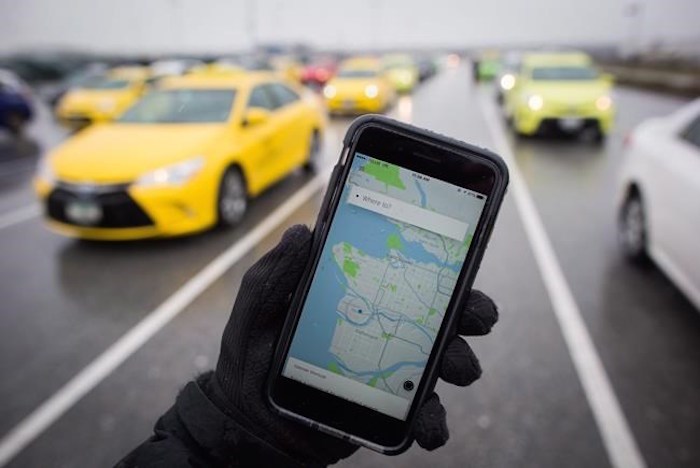VICTORIA — An all-party committee examining ride-hailing regulations in British Columbia recommends few restrictions when it comes to boundaries, fares, and supplies of vehicles and drivers.
 The Uber app is displayed on an iPhone as taxi drivers wait for passengers at Vancouver International Airport, in Richmond, B.C., on Tuesday March 7, 2017. The federal Competition Bureau wants British Columbia to re-examine its taxi regulations to permit more competition in the industry and improve services for riders and businesses. THE CANADIAN PRESS/Darryl Dyck
The Uber app is displayed on an iPhone as taxi drivers wait for passengers at Vancouver International Airport, in Richmond, B.C., on Tuesday March 7, 2017. The federal Competition Bureau wants British Columbia to re-examine its taxi regulations to permit more competition in the industry and improve services for riders and businesses. THE CANADIAN PRESS/Darryl Dyck
But Transportation Minister Claire Trevena is applying the brakes to at least one of the committee's recommendations when it comes to the licences drivers must hold.
The nine-member committee recommends drivers only need a Class 5 licence to operate ride-hailing vehicles, but Trevena says she's staying firm with a Class 4 requirement because it provides more safety for passengers.
Most drivers in B.C. hold a Class 5 licence, but drivers of taxis, ambulances and small buses must hold Class 4 licences.
Liberal Stephanie Cadieux, who is the deputy chairwoman of the select standing committee on Crown corporations, says she expects ride hailing won't be available until next year.
Trevena says the government introduced legislation last year that aims to pave the way for the introduction ride-hailing later this year.
![]()


